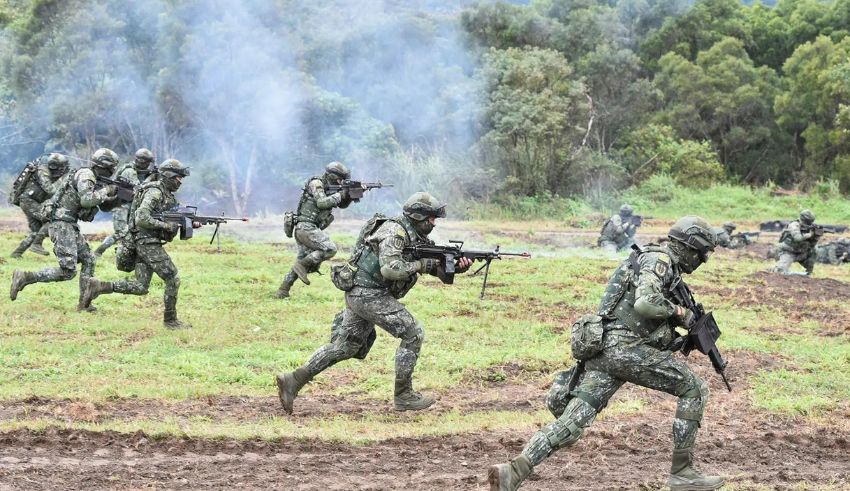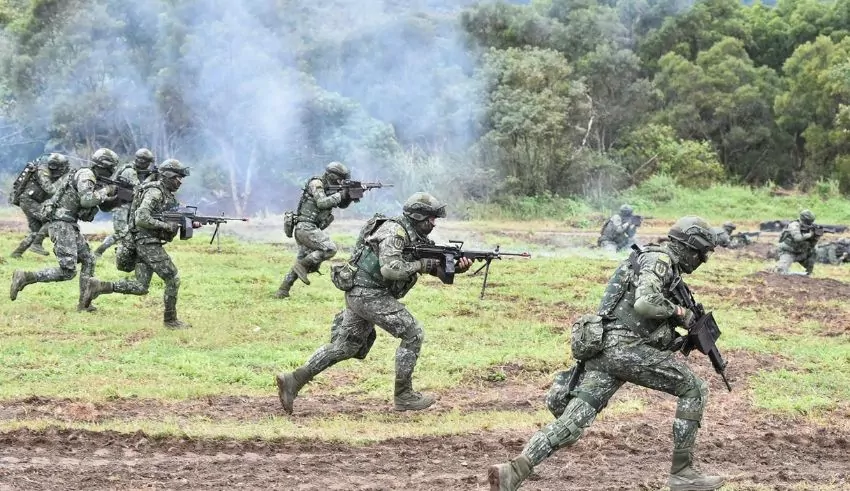

(c)The Defense Post
Taiwan has recently undertaken military maneuvers, demonstrating its readiness and resolve in the face of rising tensions with China.
Taiwan’s military drills send a clear statement that the country is ready to defend itself against future threats. These drills include a variety of capabilities, including naval maneuvers, air defense simulations, and joint operations. Taiwan hopes to discourage aggressive moves and maintain regional stability by demonstrating its military power and preparedness.
Tensions in the Asia-Pacific area have been rising, particularly in the Taiwan Strait. China’s military activity near Taiwan has grown, with frequent air and naval exercises. To preserve its security, Taiwan has improved its defense capabilities and sought assistance from international allies. Taiwan’s military drills show its proactive approach to handling this difficult security situation.
Taiwan’s military drills are likely to worsen its already strained relationship with China. Beijing regards Taiwan as part of its territory and has stated repeatedly its desire to reunify the island with the mainland. China sees Taiwan’s military exercises as a challenge to its sovereignty claims. The rising tensions have the potential to have an influence not only on bilateral relations, but also on regional stability.
Regional and international parties have expressed concern about Taiwan’s military drills. While some countries voice support for Taiwan’s self-defense operations and stress the necessity of maintaining peace and stability, others tread cautiously in order to prevent escalating tensions. Major powers’ and regional players’ reactions will influence the future dynamics of the Taiwan-China relationship and the larger regional security scene.
In the midst of heightened tensions, all parties involved must prioritize conversation, diplomacy, and peaceful outcomes. Taiwan’s military drills should be viewed as a deterrent rather than a provocation, emphasizing the necessity of maintaining stability and avoiding miscalculations or escalations that could have unintended repercussions. Engaging in productive communication and de-escalation activities is critical for reducing tensions and fostering peace.
The ongoing tensions between Taiwan and China have far-reaching consequences for regional security. Any escalation or military war in the Taiwan Strait might have far-reaching implications, affecting not just the two countries engaged, but also the Asia-Pacific region’s stability. To avoid dangers and sustain regional security, all countries must work toward peaceful solutions, uphold international norms, and foster communication.
Taiwan’s military drills serve as a reminder of the island’s readiness and determination to protect its sovereignty and maintain stability in the face of rising tensions with China. While these drills may strain relations between Taiwan and China, it is critical that all parties involved emphasize peaceful outcomes, participate in constructive communication, and endeavor to ensure regional security. The international community can help to de-escalate tensions and maintain a calm atmosphere in the Taiwan Strait.
BTS member Jin starts his solo world tour in the summer of 2025 for #RUNSEOKJIN_EP.TOUR. BTS member Jin will perform…
In a remarkable feat, Norwegian team Bodo/Glimt reached the UEFA Europa League semi-finals for the first time in history by…
Chinese President Xi Jinping landed in Cambodia on April 17 for a two-day state visit, marking the final stop of…
Finally, HBO is moving ahead with plans to create the Harry Potter TV series for air in 2026. Fans would…
The Philippine Basketball Association (PBA) has rescheduled its 2025 All-Star Weekend originally planned for May 2- May 4, 2025 in…
On Friday evening, the Memphis Grizzlies host the Dallas Mavericks for a decisive NBA Play-In Tournament game. Even though this…
This website uses cookies.
Read More